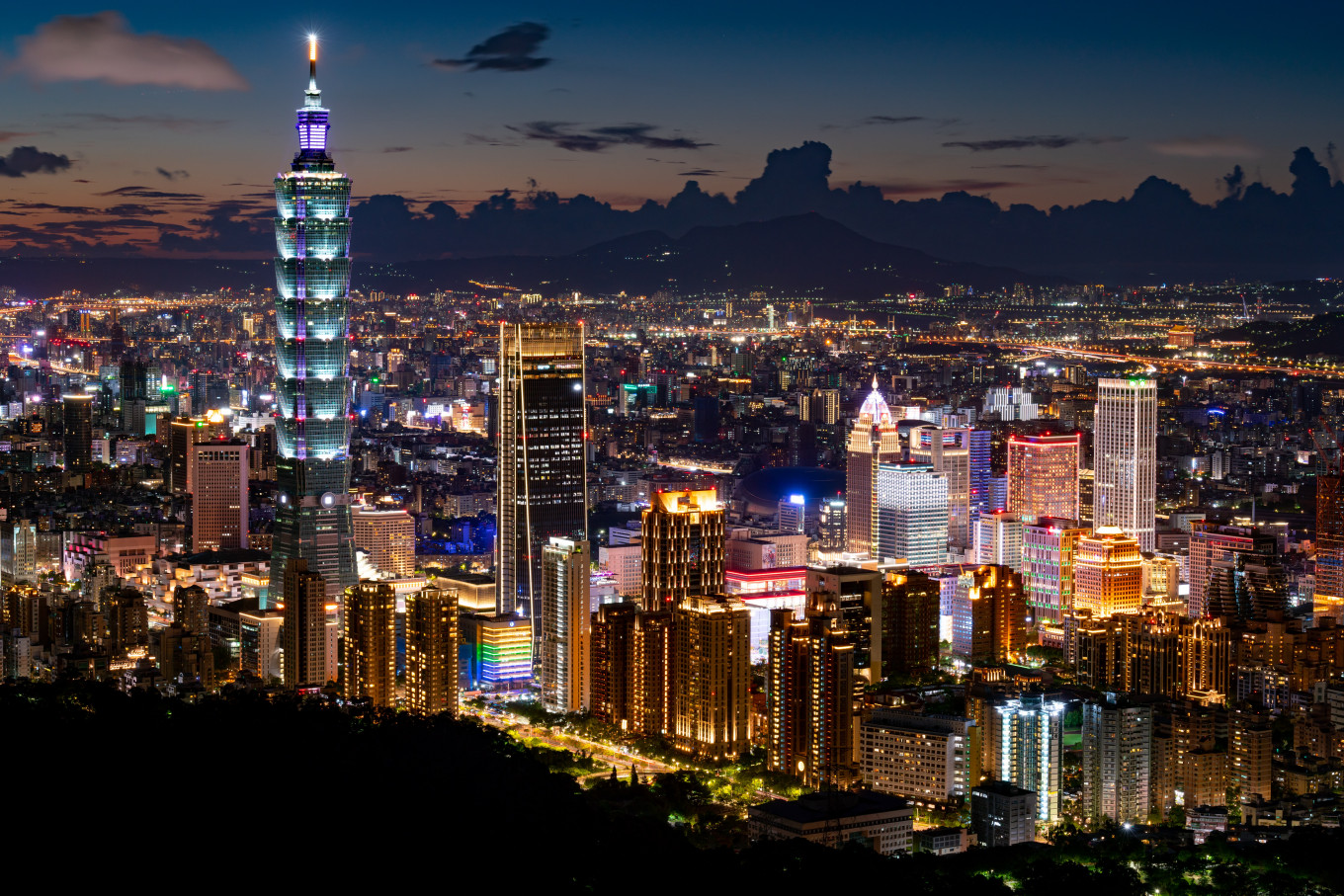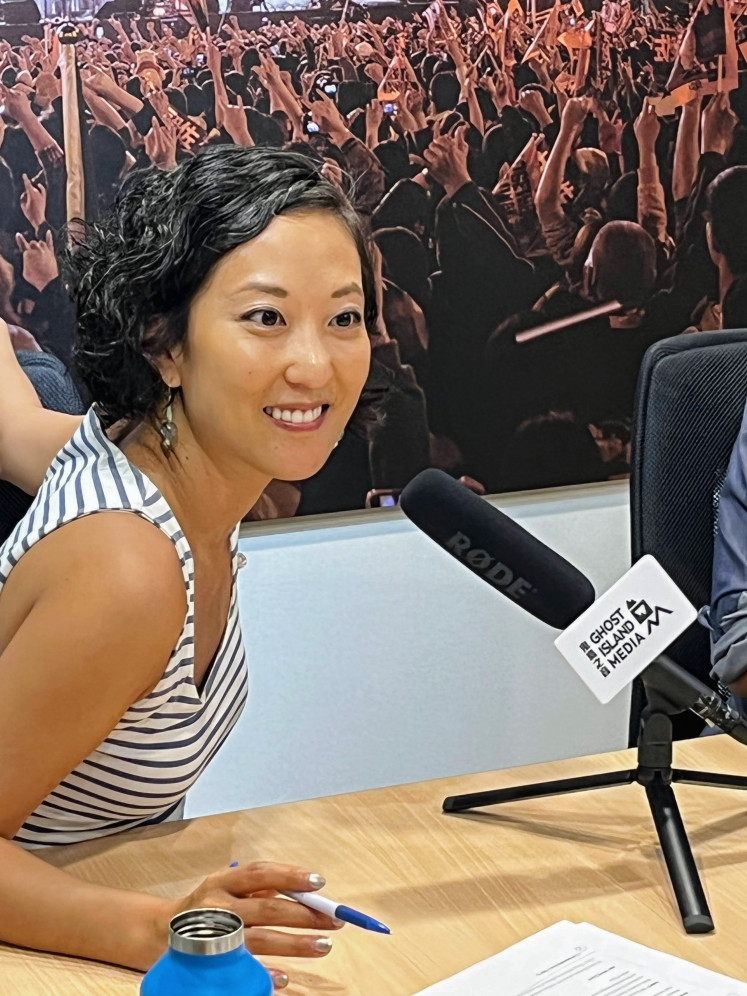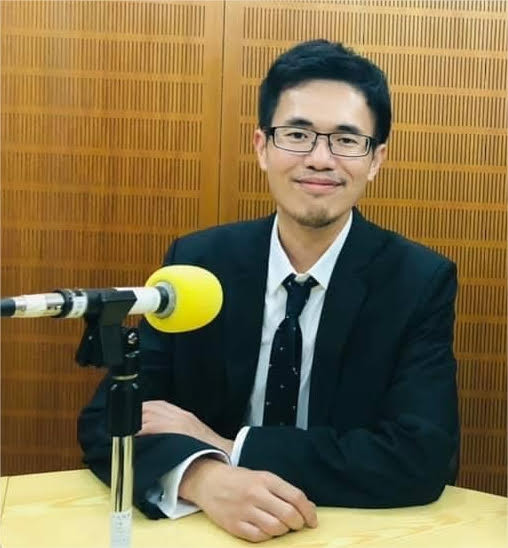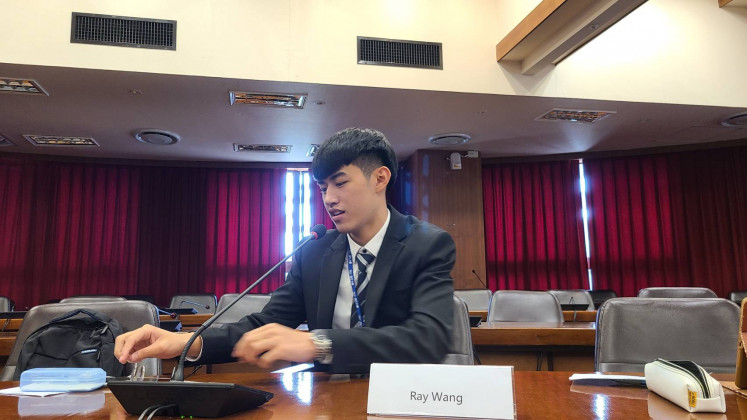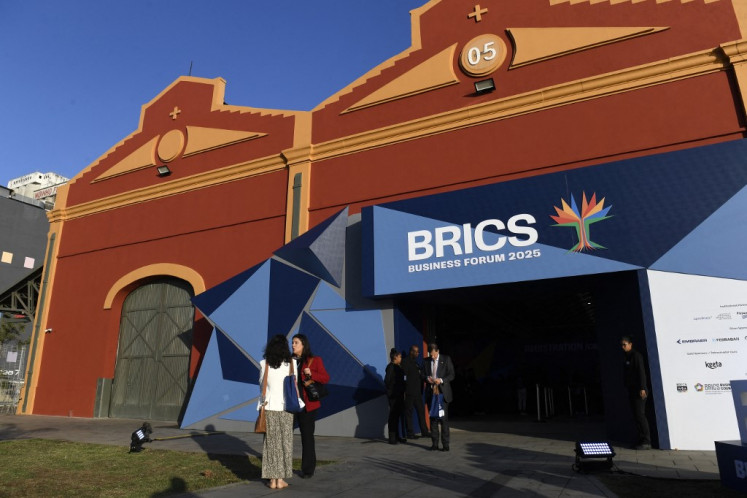Popular Reads
Top Results
Can't find what you're looking for?
View all search resultsPopular Reads
Top Results
Can't find what you're looking for?
View all search resultsLife goes on for most Taiwanese after 'unwise' Pelosi visit
Change text size
Gift Premium Articles
to Anyone
W
hile global media, politicians and analysts have pitched in on the significance of United States House of Representatives Speaker Nancy Pelosi’s visit to Taiwan, ordinary life continued for most Taiwanese people, albeit with a heightened sense of awareness.
Emily Y. Wu had a “very beautiful, lovely Sunday” and a “normal week” in Taiwan, even as daily headlines reported on escalating tension in the Taiwan Strait for the two weeks following United States House Speaker Nancy Pelosi’s visit to the island territory on Aug. 2 to 3.
Wu, the 38-year-old CEO and cofounder of Taiwanese multilingual podcast network Ghost Island Media, said she had dinner with friends, watched a TV miniseries and worked.
Despite her relatively uninterrupted daily life, however, Wu said “there’s a sense of alertness”, with people “talking about this” and “taking it very seriously”.
“But there’s no panic, I think part of this is because for decades, we had to deal with the threat from China. [It] has been the reality for us for decades,” she said. “So, it’s not new. […] We do recognize this, but at the same time, life goes on.”
Life as usual
Meanwhile, Muhammad Irfan, a 31-year-old Indonesian freelance writer and cultural studies student living in Hsinchu, some 80 kilometers from Taipei, said there were “many celebrations” in Taiwan during the week of Pelosi’s visit.
“There are the Qixi Festival and Father’s Day, perhaps people are busier celebrating these,” Irfan told the Post on Aug. 7, the former commonly referred to as “Chinese Valentine’s Day”.
“Restaurants are all fully booked from Thursday” and malls were also crowded, he added.
He said the situation was “normal”, and that he did not see any panic buying, although the streets were far from quiet. Among his circle of Taiwanese musician friends, local bands were still going on tours and releasing albums.
Taipei resident Jeremy Huai-Che Chiang, a former researcher with the Taiwan-Asia Exchange Foundation, observed that “people aren’t panicking” over the Chinese military drills, which they viewed “just as another round of aggression”.
But the 27-year-old also told the Post on Wednesday that this didn’t mean the public wasn’t paying attention to the latest developments: “Many have already been preparing themselves by participating in civilian training” in disaster response and military training.
Meanwhile, Chiang’s days had not been different since before Pelosi’s visit: “Weekdays it’s all work, maybe plus a dinner or two with friends.
“Weekends [I] will meet up with family, hang out with friends, go for a small trip, or just read and watch stuff.”
‘Thankful’
China expressed its displeasure over Pelosi’s Taiwan visit by carrying out what AFP called its “largest-ever exercises” in the waters surrounding the island beginning on Aug. 4, the day after her departure.
Chinese state media Global Times tweeted on Aug. 10 that the People’s Liberation Army’s [PLA’s] “Eastern Theater Command had successfully completed various missions during recent drills around Taiwan island. [...] The command will regularly organize combat readiness patrols in Taiwan Straits [sic]”.
While Beijing claims Taiwan as part of its territory and has not ruled out the use of force to take it, the self-ruled island has transitioned from authoritarianism to democracy and has held several elections over its tumultuous decades since the 1990s – much like Indonesia has.
Wu said that as a Taiwanese, she was “definitely very thankful” for Pelosi’s visit.
“Congressional visits to Taiwan from different countries, from partners, also from allied countries. have been happening,” she said, referring to Japanese, American and European delegations that have visited the island in recent years.
“Every time there’s a new visitor to Taiwan, we’re still happy. We’re happy to make friends.”
But Wen-Ti Sung, a China expert at the Australian National University’s Australian Centre on China in the World (CIW) in Canberra, said Taiwan was “the most important potential flashpoint in US-China relations”.
“Mishandling of the Taiwan issue can potentially trigger a military confrontation between two superpowers, which will carry reverberations for regional stability and peace for the nearby Southeast Asia,” Sung told the Post.
He said Taiwanese people “feel like they have seen this movie before”, referring “to the specter of Chinese military threat”.
Domino effect: Wen-Ti Sung, a China expert at the Australian Centre on China in the World, said that 'mishandling of the Taiwan issue can potentially trigger a military confrontation' between The United States and China, which could affect the 'regional stability and peace for the nearby Southeast Asia'. (Courtesy of Wen-Ti Sung) (Courtesy of Wen-Ti Sung/Courtesy of Wen-Ti Sung)‘Bad timing’
Regardless of the continuing ordinariness of daily lives, analysts have more pointed views of the unprecedented visit.
“Pelosi’s visit greatly demonstrates US determination and support [for] Taiwan,” said Ray Wei-Chieh Wang, a 22-year-old Taiwanese freelance analyst and writer on diplomacy and politics in the Indo-Pacific.
“However, the timing of this visit was extremely unwise. […] Visiting Taiwan at this sensitive time for China is extremely provocative,” he added.
The visit took place the day after Beijing celebrated the 95th anniversary of the PLA on Aug. 1, while the country is to hold the Chinese Communist Party’s five yearly national congress later this year.
Flightradar24 showed that Pelosi’s flight to Taiwan departed from Malaysia and flew via Indonesia and the Philippines, with the trip taking around seven hours, longer than the usual route through southern China.
'Extremely sensitive': Ray Wei-Chieh Wang, a Taiwanese freelance analyst and writer on diplomacy and politics in the Indo-Pacific, noted that while Pelosi's visit shows US support to Taiwan, the timing is sensitive as it is provocative for China. (Courtesy of Ray Wei-Chieh Wang) (Courtesy of Ray Wei-Chieh Wang/Courtesy of Ray Wei-Chieh Wang)Ratih Kabinawa, a doctoral candidate researching Taiwanese-Southeast Asian relations at the University of Western Australia, said Indonesia needed to be aware of the latest developments in Taiwan, even though the two countries did not maintain diplomatic ties.
“Indonesia, both the government and the public, has direct and indirect interests in Taiwan, so changes in the situation in Taiwan, especially militarily and politically, will affect Indonesia,” she said.
Ratih said the Jakarta’s interests also involved protecting its citizens in Taiwan, including migrant workers.
According to Taiwan’s labor department, 238,571 Indonesian migrant workers were living and working in Taiwan at the end of June.
“Other government interests are trade routes, tourism, investments and people crossing the Taiwan Strait. Indonesian people who want to continue their studies or work in Taiwan will also be affected” if tensions continue to escalate, Ratih added.
“Many aspects of Indonesian life intersect with Taiwan.”
Escalating tensions
For 31-year-old freelance journalist Clarissa Wei, China was generally not the main topic of her conversations with family and friends in Taiwan.
“While there is concern about tensions escalating, the attitude is that it's out of our hands,” she told the Post.
“Taiwan is much more than a geopolitical chess piece.
“Taiwan is a democracy, and I wish people could respect that and listen to the voice and will of the people who make up that democracy,” Wei added.

